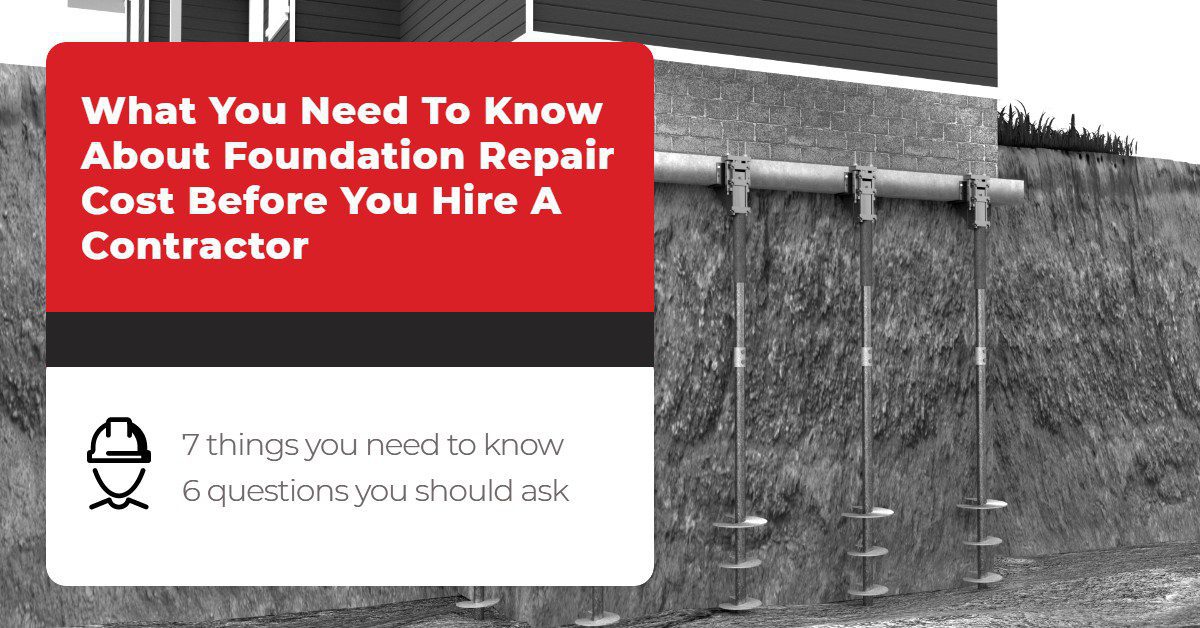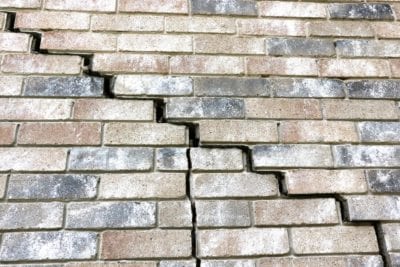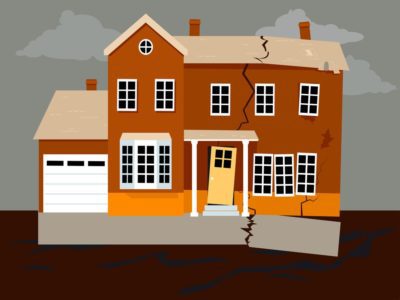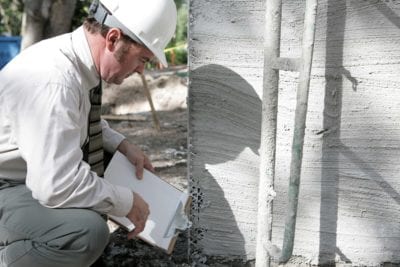A building’s structural integrity literally rests on its foundation. This is why even minor foundation issues should be repaired in a timely manner. If you put off a repair thinking that it can wait, the minor issue will turn into a big problem and you’ll end up spending even more money to fix it.
You don’t want to let that happen. If you see signs of foundation settlement like wall cracks or you’re having trouble opening doors and window, contact a foundation repair professional immediately for an inspection.
What you need to know about hiring a foundation repair contractor
We probably don’t need to tell you that a foundation repair is most definitely not a DIY project. Only a licensed, experienced foundation repair specialist should fix your foundation problem. So, here are a few things to keep in mind when hiring one…
- Get more than one on-site inspection and proposal. Foundation repairs could be major construction projects. Therefore, you’ll want to get more than one opinion and proposed solution. A visual, on-site, residential inspection should take less than an hour.
- Do plenty of research and educate yourself about the various foundation repair techniques used today. You want to hire a professional foundation specialist because they have plenty of experience and a good reputation, not because they’re offering to do the job for the lowest price or because they gave you a slick sales pitch. The more you know about foundation problems and repair techniques the easier it will be for you to weed out the fly-by-night hustlers and make information-based decisions.
- Make sure the contractor’s repair will be evaluated by local building officials. This is necessary to ensure they are up to code. Reject any proposal that does not include this.
- If you’re going to have hydraulic piles installed to lift or stabilize the building, ask the contractor if they charge extra when the piles need to be installed deeper than the standard 20-30 feet. A reputable foundation repair specialist will always charge extra for this. Beware the contractor who doesn’t because they may not install the piles deep enough in order to save themselves money. The physical property condition of the soils below your building changes with depth. All piles should be installed to a load bearing soil strata and to a minimum calculated load bearing capacity. Piles typically are installed to various depths depending on the soil conditions.
- Make sure the contractor is willing to remove any shrubbery that’s too close to the house where the piers need to be installed.
- Evaluate the warranty being offered for the repair and consider what you’ll do if the company goes out of business.
- Consider hiring a structural engineer to do the inspection and repair proposal. A structural engineer has no financial stake in whether you do the proposed repair or not. After the inspection, the engineer will write up a detailed report including a proposed solution. You can then present this to the foundation repair contractor.
Questions to ask before hiring a foundation repair contractor
- What kind of training and certification do your employees go through?
- Can I see your license?
- Are your repairs evaluated by local building officials?
- How do you test your piles? (This is a load test to verify that the piles are able to support the weight of the structure.)
- Do you carry liability insurance and workmen’s comp? Ask to see proof.
- Will permits be necessary for this repair and if so, who’s responsible for obtaining and paying for them?
What’s included in a foundation inspection
- Check elevation levels in the house to make sure they’re all the same or within code.
- Examine any cracks to determine if they pose a threat to the foundation’s structural integrity.
- Examine all load-bearing devices and support beams.
- Examine all windows and doors it make sure they fit properly.
- Examine all floors and walls to determine their structural integrity.
- Determine if there’s water damage, mold, or a problem with ventilation.
- Geotechnical or geophysical testing may be recommended to evaluate the subsurface soil conditions in order to accurately propose the correct repair.
- Check for cracks on exterior walls and determine if they pose a threat.
- Check for degraded or crumbling concrete.
- Examine exterior walls to determine if they’re bulging or buckling
- Examine drainage around the home’s exterior including irrigation for landscaping.
- Geotechnical or geophysical testing may be recommended to evaluate the subsurface soil conditions in order to accurately propose the correct repair.
Cost of foundation inspection
Foundation repair cost
Foundation repair is a permanent solution
You must disclose foundation repairs when you sell a house
Will my homeowner’s insurance cover a foundation repair?
- Call either a structural engineer or a foundation repair professional and ask for a foundation inspection.
- Educate yourself about foundation problems and their various solutions so that you’ll be able to make an informed decision about how to handle your home’s foundation repair.




